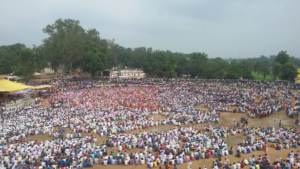

One Step Forward, Two Steps Back
Last week on this blog, I wrote about Justice Gautam Patel’s refreshing approach to adjournments and costs. Justice Patel’s order has now been overruled by a division bench of the Mumbai High Court, in an order dated March 7, 2018. The Division Bench has reduced the costs imposed on the plaintiff by Justice Patel from Rs 4,50,000 to Rs. 50,000.
The Division Bench’s order makes for disappointing reading, not because of the reduction in the costs imposed, but because it fails to offer any cogent reasoning to justify its reversal of Justice Patel’s order. The Division Bench’s sole justification is that the cost imposed by the single judge had “to be reduced to a reasonable extent”, in its view. The Division Bench relied on a 2001 Delhi High Court judgment which lays down the principle that costs should not be in the nature of a penalty. The Division Bench did not explain why it concluded that Rs. 50,000 was reasonable and Rs. 4,50,000 was not. The single judge had explained in detail the reasons for imposing a cost of Rs. 4,50,000.
The lack of reasoning in the Division Bench’s order is reflective of the general reluctance of the Indian judiciary to take delay and adjournments seriously. A plaintiff who is dragging the process along without any reason (apart from stating that the person who was supposed to sign the affidavit is 79 years old), while benefitting from an interim order (evident from the arguments by the Defendant before the Division Bench), is granted relief in an appeal. The speed and alacrity shown by the plaintiff in filing the appeal was not in display before the single judge. The Division Bench not only ignores the plaintiff’s unreasonable and cynical behaviour but also does not bother to explain why they are reversing the order of the single judge. The cost to the defendant is neither considered nor explained. A single adjournment can be compensated by ordering a cost based on the inconvenience caused that day, but a multi-year delay caused by adjournment cannot be measured by the inconvenience of the day on which the adjournment is sought. A holistic approach has to be taken, as the single judge had rightly done.
The views expressed in this article are solely those of the author’s and they do not represent the views of DAKSH.

Harish Narasappa
RECENT ARTICLES


POLITICAL MANIFESTOS AND JUDICIAL REFORMS

Challenges in NCLT Filing Procedures: Advocates’ Perspectives

Beyond Revenue – Reimagining Court Fee As A Policy Tool For Judicial Administration

-
Rule of Law ProjectRule of Law Project
-
Access to Justice SurveyAccess to Justice Survey
-
BlogBlog
-
Contact UsContact Us
-
Statistics and ReportsStatistics and Reports
© 2021 DAKSH India. All rights reserved
Powered by Oy Media Solutions
Designed by GGWP Design